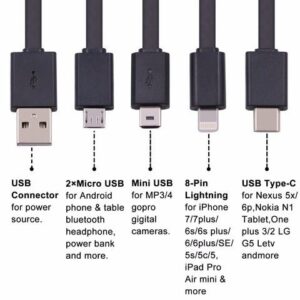Curious about how long a Nissan Leaf battery will last? Well, you’re in the right place! The lifespan of the Nissan Leaf battery is a key concern for potential electric vehicle owners. After all, no one wants to invest in a vehicle only to be left stranded with a depleted battery. In this article, we’ll explore the factors that impact the longevity of the Nissan Leaf battery and unravel the mysteries surrounding its durability. So, if you’re wondering how long will a Nissan Leaf battery last, keep reading to find out all the answers you seek. Let’s dive in!
How Long Will a Nissan Leaf Battery Last?
The Nissan Leaf is one of the most popular electric vehicles (EVs) on the market, known for its eco-friendly performance and innovative features. One of the main concerns for potential EV owners is the lifespan of the battery. In this article, we will explore how long the Nissan Leaf battery lasts, factors that can affect its longevity, and tips to maximize its lifespan.
Understanding Battery Lifespan
A key consideration when evaluating the lifespan of an EV battery is the concept of “battery degradation.” Battery degradation refers to the gradual loss of a battery’s capacity over time, leading to reduced range and performance. While it is normal for batteries to degrade over time, the rate of degradation can vary based on several factors.
Battery Capacity and Range
When the Nissan Leaf is brand new, it comes with a specific battery capacity that determines its range. However, as the battery ages, it may not hold the same charge as it did when it was new. This can result in a decrease in driving range, which is an essential factor for EV owners.
The first-generation Nissan Leaf, released in 2010, had a battery capacity of 24 kWh. Over the years, Nissan has made advancements, and the latest models have a larger battery capacity, such as the 40 kWh or 62 kWh options. The increased capacity allows for longer ranges, but it does not necessarily affect the battery’s lifespan.
Factors Affecting Nissan Leaf Battery Lifespan
Several factors can influence the lifespan of the Nissan Leaf battery. Let’s take a closer look at each of these factors and understand their impact.
1. Climate
Extreme temperatures, both hot and cold, can impact the battery’s performance and longevity. High temperatures can accelerate the rate of battery degradation, while extremely cold temperatures can reduce the battery’s overall capacity. It is crucial to factor in the climate of your location and understand how it may affect your battery’s lifespan.
2. Charging Habits
The way you charge your Nissan Leaf can also impact the battery’s lifespan. Here are some charging habits to consider:
- Avoid frequent fast charging: Fast charging stations can quickly charge your battery but can also increase the stress on the cells, potentially leading to faster degradation. It is best to use fast charging sparingly.
- Avoid fully depleting or overcharging: Keeping your battery within a moderate state of charge (between 20% and 80%) can help prolong its lifespan. Avoid letting the battery completely discharge or remaining fully charged for extended periods.
- Use a level 2 charger: Level 2 chargers provide a slower, more consistent charge, which is gentler on the battery compared to rapid charging.
3. Driving Habits
Another factor that can impact battery lifespan is driving habits. Aggressive acceleration, frequent hard braking, and driving at high speeds can all put additional stress on the battery and reduce its lifespan. It is recommended to drive efficiently and maintain a consistent speed to help preserve the battery’s health.
4. Battery Management System
The Nissan Leaf comes equipped with a sophisticated Battery Management System (BMS) that helps monitor and maintain the battery’s health. The BMS regulates charging, temperature, and other factors to optimize the battery’s performance. Regular software updates from Nissan can also improve the BMS functionality, so it’s essential to stay up to date with the latest upgrades.
Maximizing Nissan Leaf Battery Lifespan
While battery degradation is inevitable, there are steps you can take to maximize the lifespan of your Nissan Leaf battery. Here are some tips to keep your battery in top condition:
1. Charge to Moderate Levels
As mentioned earlier, keeping your battery within the 20% to 80% charge range can help prolong its lifespan. Avoid letting it reach a critically low or excessively high charge level whenever possible.
2. Minimize Extreme Temperatures
If you live in an area with extreme temperatures, consider parking your Nissan Leaf in a garage or shade to protect it from the elements. Additionally, pre-conditioning the battery before driving in extreme weather can help optimize its performance.
3. Plan Charging Sessions
Rather than relying on fast charging stations for daily use, plan your charging sessions to take advantage of slower, more gentle chargers. Using a level 2 charger overnight can provide ample charge while minimizing stress on the battery.
4. Stay Up to Date
Regularly updating your Nissan Leaf’s software and BMS can ensure you have the latest enhancements and optimizations. These updates can improve battery performance and overall longevity.
In Summary
The lifespan of a Nissan Leaf battery depends on various factors, including climate, charging habits, driving style, and the battery management system. While battery degradation is inevitable, taking proper care of the battery can help maximize its lifespan. By following the tips mentioned in this article, you can enjoy your Nissan Leaf’s performance and range for many years to come.
Frequently Asked Questions
How long will a Nissan Leaf battery last?
The lifespan of a Nissan Leaf battery depends on several factors, including usage patterns, environmental conditions, and maintenance. Here are some frequently asked questions related to the battery life:
What is the average lifespan of a Nissan Leaf battery?
The average lifespan of a Nissan Leaf battery is typically around 8 to 10 years, or approximately 100,000 to 150,000 miles, before its capacity starts to degrade.
What affects the lifespan of a Nissan Leaf battery?
Several factors affect the lifespan of a Nissan Leaf battery, including temperature extremes, fast charging frequency, deep discharges, and overall driving patterns. It is important to avoid exposing the battery to extreme hot or cold temperatures as it can accelerate degradation.
How can I maximize the lifespan of my Nissan Leaf battery?
To maximize the lifespan of your Nissan Leaf battery, it is recommended to avoid frequent fast charging and deep discharges. Maintaining the battery within the optimal temperature range and following the manufacturer’s guidelines for maintenance and care can also help extend its life.
Can a Nissan Leaf battery be replaced?
Yes, a Nissan Leaf battery can be replaced if necessary. Nissan offers battery replacement programs and certified dealerships can assist with the battery replacement process. It is important to consult with professionals and follow the recommended procedures for battery replacement.
What happens when a Nissan Leaf battery reaches the end of its life?
When a Nissan Leaf battery reaches the end of its life or its capacity significantly degrades, it may no longer provide sufficient range and performance. In such cases, it is advisable to consider replacing the battery or consulting with Nissan dealerships for further guidance.
Final Thoughts
The Nissan Leaf battery lifespan is influenced by several factors such as temperature, usage patterns, and maintenance. On average, the battery can last around 8-10 years with proper care. Nissan offers a warranty that covers battery capacity loss up to 8 years or 100,000 miles. However, many Leaf owners have reported that their batteries have exceeded these estimates, lasting well beyond 10 years. So, if you’re wondering how long a Nissan Leaf battery will last, you can expect it to provide reliable performance for at least a decade or more with regular maintenance and careful usage.




